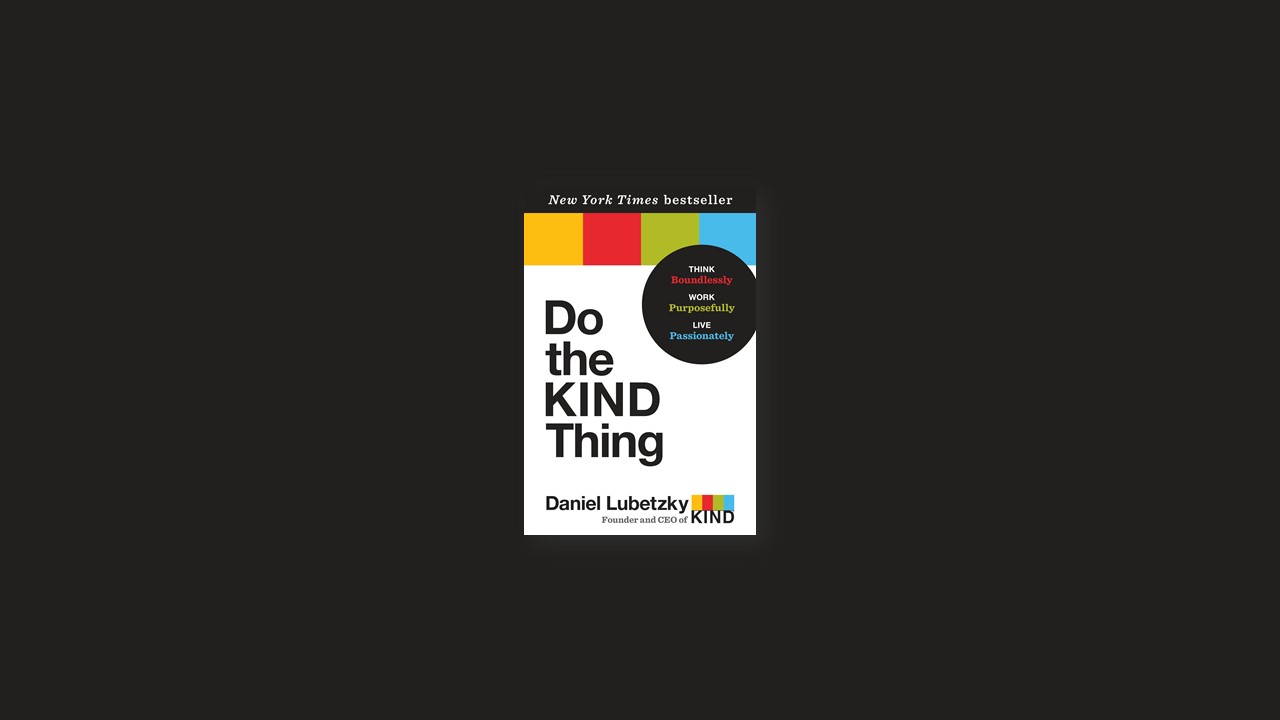Purpose: A Fuel for Your Passion
Knowing what makes you happy is presumably the first step to actually being happy. So why is it that so many people go their entire lives without considering it? It is tough work, actually, not just because our modern culture of tweets, blogs, emails, and Facebook posts extinguishes our time for deep reflection, but because these are tough questions that are not easy to answer. If you never ask them, though, you will never even start the journey to find the answers. And the journey itself may be the answer.
If you can find what you love, and do it, your success is guaranteed—because every day pursuing what you care about will fulfill you. But if you let societal pressure fool you into thinking that your “goals” are financial success, or power, or fame, or other empty concepts on which you benchmark yourself against others, you’ll be like a hamster running on a wheel, never quite reaching the goal.
Grit: Steadfastly Advancing Your Vision
If something goes wrong, don’t be afraid to try again. What matters is effort. What matters is that you don’t give up. Don’t be afraid to fail. Be afraid to not try. Children (young and old) want to avoid disappointing their parents. It is important for us to learn to compete with ourselves and be proud of our effort and not to try to succeed to impress others. A great book that shares insights on this front is NurtureShock, by Po Bronson and Ashley Merryman.
Much of our success—or lack thereof—in life stems from luck. But much of that luck is also related to our persistence in the game. If you don’t play the game, after all, you can’t score. Life will certainly throw many curveballs, so teaching ourselves and our loved ones to have a resilient mindset can help us deal with that uncertainty and persevere. It is critical that we build—in ourselves and in our offspring—the self-confidence necessary to keep playing the game, even if we don’t think we are that good at it. The more we play it, the better we get at it.
Truth and Discipline: Staying True to the Brand and to Yourself
Business is like the game of Risk. If you expand your armies too quickly and try to conquer land after land, you disperse your forces and leave your borders vulnerable.
You want each new move to be strong: Your products need to stand on their own and prevail at every store where they compete. Otherwise, if you fail with new products, you’ll also dilute your assets and expose yourself in the key areas where you had an opportunity to succeed. You’ll be deploying resources and attention that are desperately needed to maintain and grow your market share in your core.
You can expand eventually, but you need to do so only once your flagship line is well cemented—or a competitor will come in and take away your market share. When you do expand, make sure you’re not changing the value proposition, which can confuse and scare away your existing customers. And confirm that you have enough resources to push hard. It’s a matter of playing offense and defense. Being passionate without a strategy won’t help your business.
Keeping It Simple: Practicing Restraint to Stay Grounded
No matter how great and innovative your ideas are, and how hard you work, some will succeed and others won’t. You can’t control exogenous events—recessions, stock market crashes or bubbles, wars, fads, the luck of good timing—nor should you take credit for them when they benefit you.
This isn’t just because humility makes you more agreeable (although, of course, being nice is its own reward). If you don’t take anything for granted, you are more likely to prevent catastrophic failures, and you are less likely to just coast when things are good.
Staying grounded and humble also means never getting cocky and always staying alert to business threats. Sometimes, someone really is out to get you. In business it’s always crucial to keep your antennae up. You need to retain the humility to remember your company is not invincible. Nothing is static in business: you are either gaining or losing market share. As Intel founder Andy Grove wrote in his 1999 book of the same name, “Only the paranoid survive.” You should always feel vulnerable and exposed.
Originality: Unlocking the Ability to Think Boundlessly
When you’re starting to innovate past your core product, you constantly have to remind yourself what your brand stands for. You run the risk of confusing consumers by giving them conflicting messages. This is the time to evaluate what your brand means to consumers and what you want it to represent. It’s a tough question: Who are you as a company? The key, before you expand, is to know the answer.
To innovate is to do something that is truly different and disruptive, that takes you into an area where you have not been before. But effective innovation must stay on brand and make sense to those who know what to expect from you. There has to be a common thread, a consistency, an underlying premise or set of values, so that there’s credibility to your efforts.
Someone once told “A brand is a promise. And a great brand is a promise well kept.”
Transparency and Authenticity: The Value of Open Communication
Authenticity is about accepting who and what you are, and having the sense of self not to portray yourself as something else. If you are authentic, you learn to move past the urge to be different things to different people. It’s crucial to be transparent about your strengths and weaknesses, and to accept your mistakes. Always showcase your top selling points in marketing, but don’t try to run away from characteristics that are part of you. Being true to yourself—for a leader as much as for a brand—will make it easier for others to understand what you represent and to respect you.
Authenticity does not mean perfection, but people will choose an authentic brand with some limitations over a fake brand proclaiming flawlessness. Authenticity is an ongoing quest: As we grow we strive to be extra vigilant about honoring truth, transparency, and authenticity.
Authenticity is the value that helps consumers believe your brand promise. The more authentic it is, the further your brand can be heard without having to scream so loud.
Empathy: Channeling the Ability to Connect and Create Community
Even though people do not traditionally think of it as a business skill, empathy can actually create enormous value, and lack of empathy can destroy value.
Assuming the worst in others can take you down a terrible path. If you react harshly, the other party interprets your aggression as bad faith rather than caution, and before you know it, overreactions have doomed potential partnerships and fruitful relations. When trying to strike a deal or prevent it from going sour, being able to put yourself in the other side’s shoes can help you reach better decisions.
It is possible that in an adversarial relationship you need to show the other party that you won’t cave to bullying or injustice. But you risk overshooting if you react emotionally (although it is difficult not to in those circumstances). If you are able to operate from a position of strength, it is important to also show empathy, and even to signal generosity. Often just explicitly acknowledging how the other side must see things can help them open up to see your side, and can help both parties reestablish good faith efforts to negotiate a fair outcome. More often than not in these circumstances, issues of honor and dignity end up driving dynamics more than the economics of a transaction. Empathy is thus key to achieve constructive outcomes.


